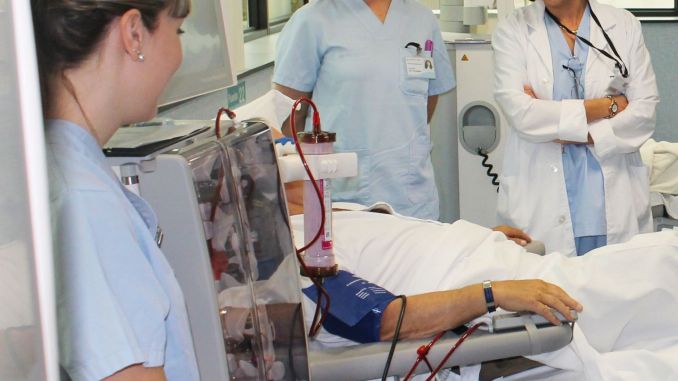The dialysis service of the University Hospital of Torrevieja has increased its treatment coverage to meet the demand of visitors who are holidaying in the area during the summer months.
The additional support allows patients from other communities and countries who are on a dialysis program to spend their holiday in the area whilst still being able to receive treatment.
Patients who are receiving their dialysis treatment spend four hours a day for two or three days a week.
During the summer months, the department’s population requiring care multiplies, so from Monday to Saturday, the service has now increased from its usual two dialysis shifts a day to three.
Patients require dialysis when the kidneys are no longer able to remove waste and excess fluid from the blood in sufficient quantities to keep the patient healthy. Generally, this occurs when you develop end stage kidney failure – usually by the time you lose about 85 to 90 percent of your kidney function at which stage the kidneys are working at between 5 and 15% of their normal rate.
In the haemodialysis process, the patient’s blood is taken from the body into a machine commonly known as an “artificial kidney” in which it passes through a cleaning filter (dialyzer), in which the exchange between the fluid occurs from the dialyzer and the blood, collecting toxic substances from the blood and providing other beneficial ones, after which it is returned back to the body.
The Dialysis Unit of the Torrevieja Hospital has the most advanced technology and equipment designed to meet the needs of its patients. It has high permeability dialyzers and the very latest generation monitors, enabling it to provide the very latest in advanced dialysis techniques.
The hospital currently has 29 units equipped and able to offer the latest technology in dialysis, as well as state-of-the-art dialysis monitors. In addition, there is a water plant with double osmosis to perform conventional dialysis with ultrapure water and online hemodiafiltration, as well as isolation rooms in which care is performed with independent monitors.





